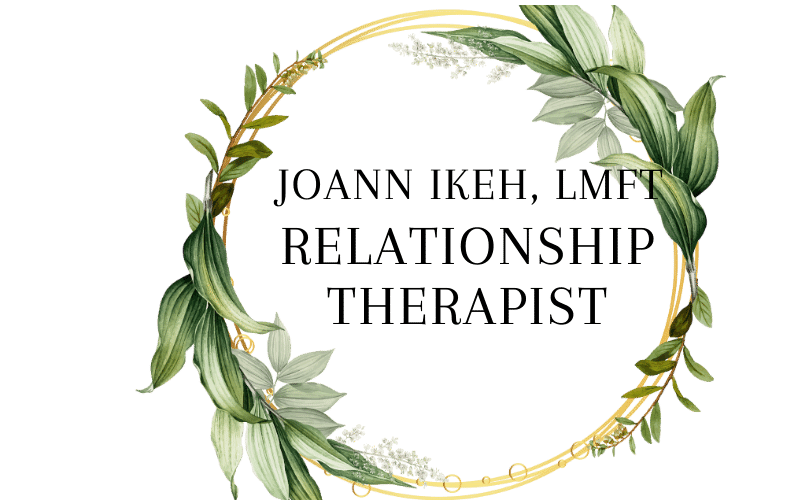5 Ways to Navigate and Thrive as a Highly Sensitive Person in a Relationship
Are you a highly sensitive person in a relationship? If so, you may have encountered unique challenges due to your sensitivity. But fear not! In this article, we will explore five effective ways for highly sensitive individuals to navigate and thrive in their relationships.
Being a highly sensitive person (HSP) means that you experience emotions more intensely and are highly attuned to both your own feelings and the emotions of others. This can create both immense joy and profound challenges in relationships.
Firstly, we will delve into the importance of open communication and setting boundaries. HSPs thrive in relationships where they feel safe expressing their emotions and needs. Secondly, we will discuss the significance of self-care for an HSP. Sensory overload can be draining, making self-care practices essential for maintaining your well-being.
Next, we will explore how understanding your partner's perspective can foster empathy and compassion in your relationship. Additionally, we will provide tips for embracing your sensitivity as a strength rather than a weakness.
Join us as we unlock the secrets to a thriving relationship as a highly sensitive person. Get ready to deepen your connection, enhance your emotional well-being, and create a lasting love that honors your unique qualities as an HSP.
Understanding Highly Sensitive People (HSPs)
Highly sensitive people (HSPs) have a unique way of processing the world around them. They are more sensitive to stimuli, such as loud noises, bright lights, or strong smells. This heightened sensitivity extends to emotions as well, making HSPs more susceptible to feeling overwhelmed by intense feelings. Understanding this aspect of yourself is crucial in navigating relationships as an HSP.
One of the key characteristics of HSPs is their ability to pick up on subtle cues and emotions. They are highly empathetic, often feeling what others are feeling almost as intensely as if it were their own emotion. This can be a tremendous strength in a relationship, as it allows for deep emotional connection and understanding. However, it can also pose challenges if not managed properly.
Navigating relationships as an HSP requires a deep understanding of your own emotions and boundaries, as well as a willingness to communicate and compromise with your partner. By embracing your sensitivity and recognizing it as a valuable trait, you can create a thriving and fulfilling relationship.
Challenges faced by HSPs in relationships
Being an HSP in a relationship comes with its own set of challenges. The intense emotions and sensitivity to stimuli can sometimes become overwhelming, leading to feelings of anxiety or even physical discomfort. This can make it difficult for HSPs to fully engage in their relationships and can put a strain on both partners.
Another challenge faced by HSPs is the tendency to take on the emotions and problems of their partner. HSPs are highly empathetic and may find it challenging to separate their own emotions from those of their partner. This can lead to emotional exhaustion and burnout if not properly managed.
Additionally, HSPs may struggle with setting and maintaining boundaries in their relationships. Their natural inclination to please and avoid conflict can sometimes lead to a lack of assertiveness and an imbalance in the relationship dynamics.
Communication strategies for HSPs in relationships
Open and honest communication is vital for any relationship, but it is especially crucial for HSPs. Being able to express your emotions and needs in a safe and non-judgmental environment is essential for a thriving relationship as an HSP.
Start by creating a safe space for open communication with your partner. Let them know that you value their understanding and support. Encourage them to share their feelings as well, as this will foster a deeper emotional connection.
When communicating, be mindful of your own emotions and the impact they may have on your partner. HSPs are prone to intense emotional reactions, so it's important to take a step back and assess whether a situation warrants such a response. Use "I" statements to express your feelings and needs, and be open to listening to your partner's perspective without judgment.
Setting boundaries and self-care for HSPs in relationships
Setting boundaries is crucial for the emotional well-being of HSPs in relationships. It's important to communicate your limits and needs to your partner, ensuring that your own emotional and physical well-being is prioritized.
Start by identifying your personal boundaries. Reflect on what makes you feel comfortable and what triggers your sensitivity. Communicate these boundaries to your partner and discuss how you can both respect and support each other's needs.
In addition to setting boundaries, self-care practices are essential for HSPs. Sensory overload can be draining, so it's important to take time for yourself to recharge and rejuvenate. Engage in activities that bring you joy and help you relax, whether it's going for a walk in nature, practicing meditation, or indulging in a favorite hobby.
Finding compatible partners as an HSP
Finding a compatible partner who understands and appreciates your sensitivity is key to a thriving relationship as an HSP. Look for someone who is empathetic, patient, and understanding. They should be willing to learn about your unique needs and be supportive of your emotional well-being.
When dating, take the time to get to know potential partners on a deeper level. Ask questions that will help you gauge their level of empathy and understanding. Pay attention to how they respond to your emotions and how they handle conflict.
Remember, it's important to be patient and not settle for someone who does not appreciate or respect your sensitivity. A compatible partner will embrace your unique qualities and support you in navigating the challenges of being an HSP in a relationship.
Tips for supporting an HSP partner
If you are in a relationship with an HSP, there are several tips you can follow to support and nurture your partner's emotional well-being.
Firstly, practice active listening. Give your partner your full attention when they are expressing their feelings or concerns. Show empathy and validate their emotions, even if you may not fully understand them.
Secondly, create a safe and calm environment at home. HSPs thrive in peaceful and harmonious surroundings, so make an effort to create a space that is free from excessive noise, clutter, or other stimuli that may overwhelm them.
Encourage your partner to prioritize self-care and engage in activities that help them recharge. Offer to join them in activities that they find soothing or enjoyable, such as taking a bath, practicing yoga, or simply spending quality time together without distractions.
Seeking professional help for HSPs in relationships
Sometimes, navigating relationships as an HSP may require professional help. If you find that you and your partner are struggling to communicate effectively or manage the challenges of your sensitivity, seeking therapy or counseling can be beneficial. If you are in Miami or throughout Florida, Virginia or California I may be able to help, you can book a free consult below.
A therapist can provide guidance and support in navigating the unique challenges faced by HSPs in relationships. They can help you and your partner develop healthy communication strategies, set boundaries, and work through any underlying issues that may be impacting your relationship.
Nurturing emotional intimacy as an HSP
Emotional intimacy is a cornerstone of any thriving relationship, and it is especially important for HSPs. Building emotional intimacy requires vulnerability, trust, and empathy.
To nurture emotional intimacy as an HSP, create opportunities for deep and meaningful conversations with your partner. Share your fears, dreams, and aspirations. Encourage your partner to do the same, and actively listen without judgment.
Additionally, engage in activities that promote emotional connection, such as cuddling, holding hands, or engaging in shared hobbies. These small gestures can go a long way in fostering a deep emotional bond with your partner.
Celebrating the strengths of being an HSP in a relationship
While being an HSP in a relationship may present its challenges, it is also a tremendous strength. HSPs have a unique ability to deeply connect with their partners and offer immense empathy and understanding.
Embrace your sensitivity as a gift and celebrate the strengths it brings to your relationship. Use your intuition and emotional intelligence to navigate conflicts and foster a deeper connection with your partner.
Remember, being an HSP is not a weakness but a unique quality that sets you apart. By embracing and honoring your sensitivity, you can create a lasting love that thrives on understanding, empathy, and emotional intimacy.
Conclusion: Embracing your sensitivity in relationships
Being a highly sensitive person in a relationship can be both challenging and rewarding. By understanding and embracing your sensitivity, setting boundaries, and practicing open communication, you can navigate the unique challenges faced by HSPs and create a thriving and fulfilling relationship.
Remember, finding a compatible partner who appreciates and supports your sensitivity is crucial. Nurture emotional intimacy, prioritize self-care, and seek professional help if needed. Embrace your sensitivity as a strength and celebrate the unique qualities you bring to your relationship.
With these five effective ways to navigate and thrive as an HSP in a relationship, you can deepen your connection, enhance your emotional well-being, and create a lasting love that honors your unique qualities as an HSP.
Joann Ikeh, LMFT
onlinecouplecounseling.com



